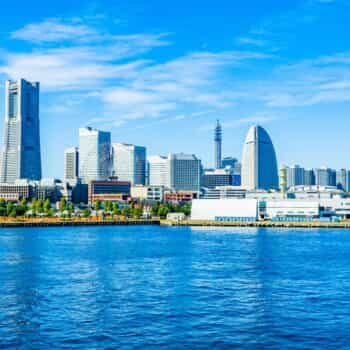
Circular Yokohama Hosts UIUC from USA: A One-Day Journey into Circular Design
- On 2024/6/18
Circular Yokohama welcomed the Circular Design Learning tour from Illinois, USA, on May 24, 2024. We hosted 14 students and two teachers from the University of Illinois Urbana-Champaign (hereinafter “UIUC”).
About the Circular Design Learning with University of Illinois Urbana-Champaign
This one-day tour in Yokohama is part of UIUC’s special programs in sustainable design study. The program provides students with a two-week immersive experience in Japanese sustainable design and eco-conscious living.
Yokohama was one of the destinations the students visited, and Circular Yokohama coordinated a one-day tour dedicated to circular design. This is a report on the one-day journey in Yokohama City with UIUC.
Part 1: Circular City Development in Hoshiten area
In the morning, we welcomed the group from UIUC at Hoshiten qlay, where Circular Yokohama’s showroom, “qlaytion gallery,” is located.
We showcased the Yokohama Circular Design Museum, which is a hub of circular city development. The students looked through all the circular products and grasped the current circumstances of the circular economy in Yokohama.
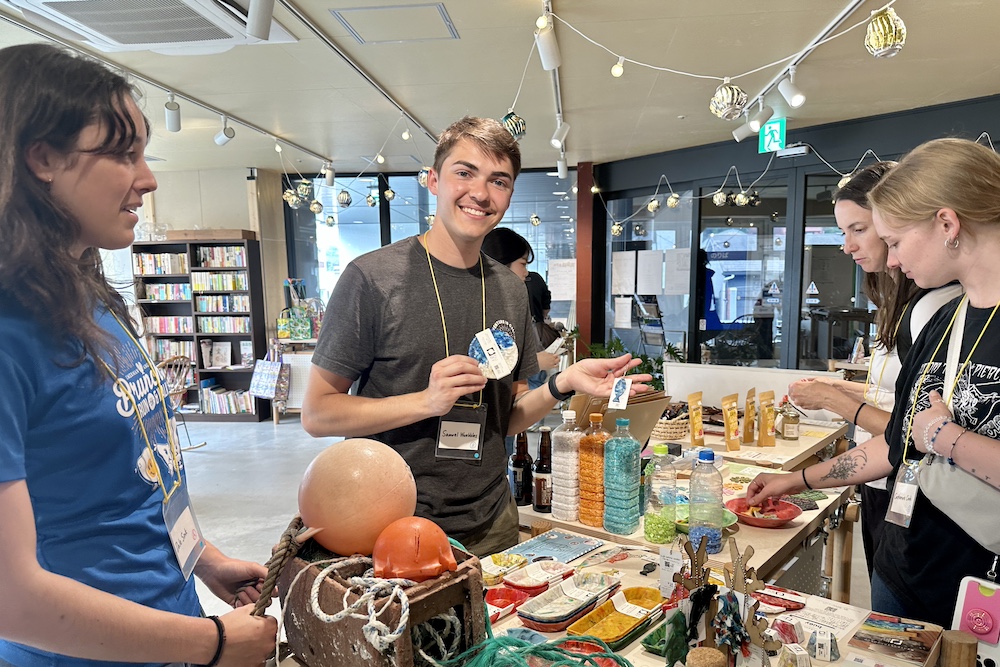
a scene from the museum tour
After the museum tour, Harch members introduced three of our web media brands, Circular Yokohama, Life Hugger, and Zenbird.
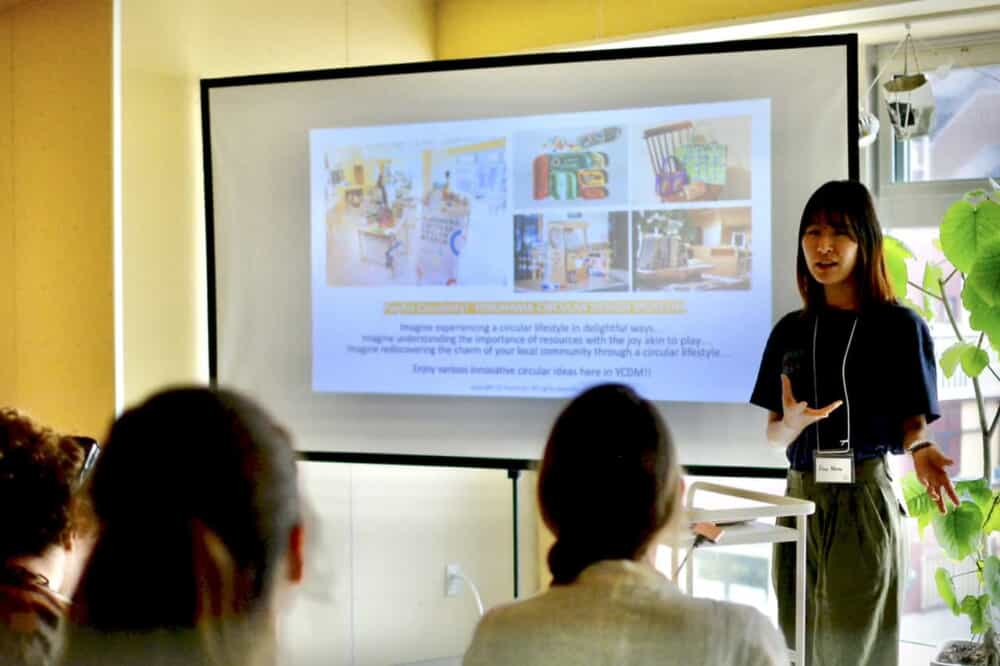
Circular Yokohama member presenting its activities
The main session of this part was to learn circular city design along with trains in Japan. We had Sotetsu Urban Creates Co., Ltd. (hereinafter “Sotetsu”) as a guest.
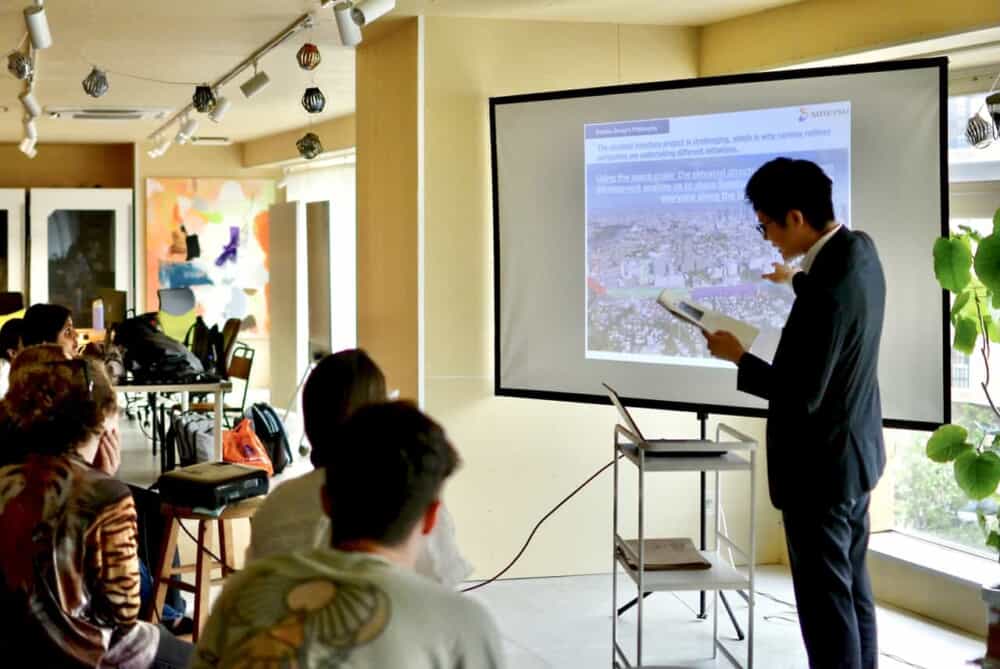
Ryohei, Sotetsu, introducing the project
Sotetsu is one of the local train companies in Japan, and Hoshikawa Station, where Hoshiten qlay is located, is one of the stations on the Sotetsu line.
Ryohei from Sotetsu introduced the history of the city’s development by the train company and the purpose of their sustainable city development in Hoshiten qlay.
The highlight was their railway elevation project between Tennocho and Hoshikawa stations.
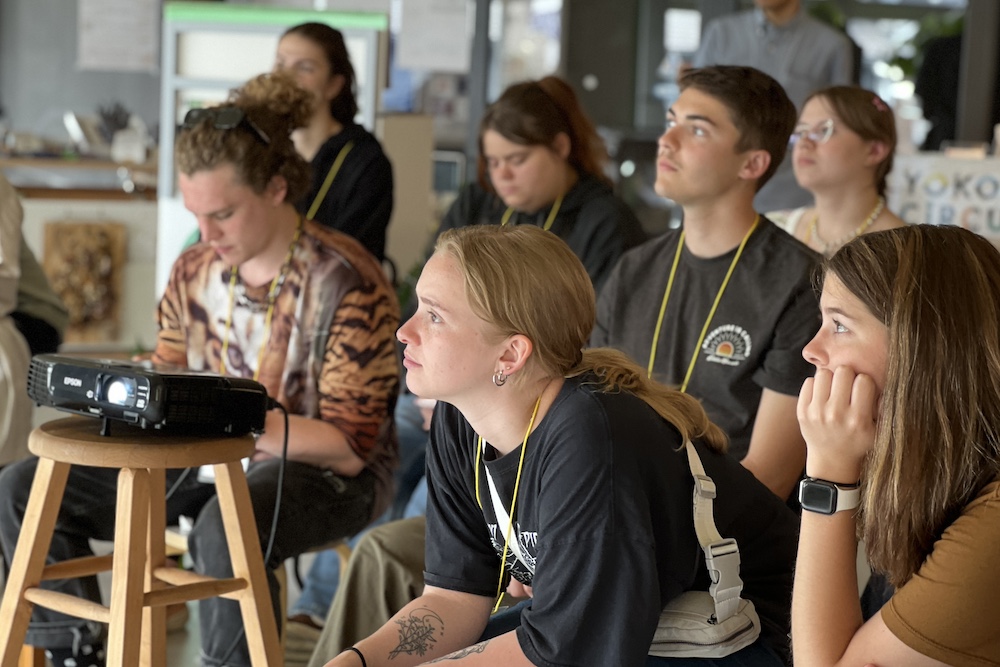
a scene from the presentation session
Due to the development of railways, road congestion at railway crossings, commonly known as level crossings, has become one of the social issues in urban areas in Japan. There are even some level crossings where the gates are closed for more than 50 minutes in an hour during busy times.
To solve this issue, Sotetsu developed the area under the viaduct, which was originally where the railway ran on the ground, and opened Hoshiten qlay.
Although developing under elevated structures in urban areas is often challenging both technically and economically, Sotetsu decided to take on the challenge of creating value along the line through new town development while ensuring profitability.
After Ryohei’s presentation, the students took a walk around Hoshiten qlay with Sotetsu members.
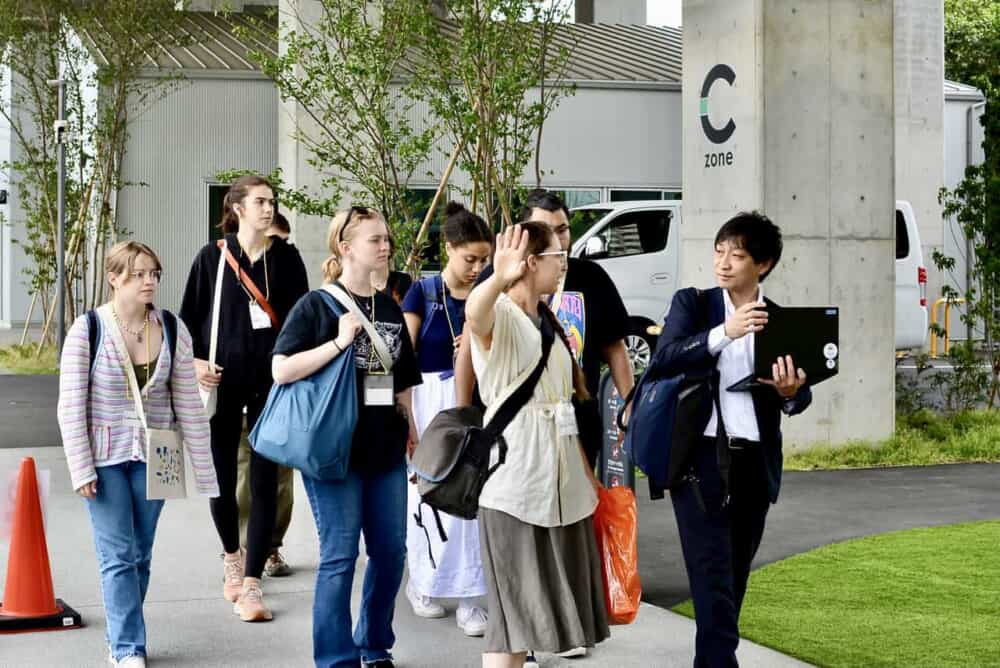
a scene from the exploration
The students raised questions during the exploration, such as why Sotetsu decided to elevate the railways instead of building bridges for cars to avoid traffic jams, and if gentrification is caused by Sotetsu’s new city development.
Sotetsu members explained that their city development is based on a sustainable development concept and it is still challenging since it has been only six years after the railways were elevated and two years after Hoshiten qlay opened.
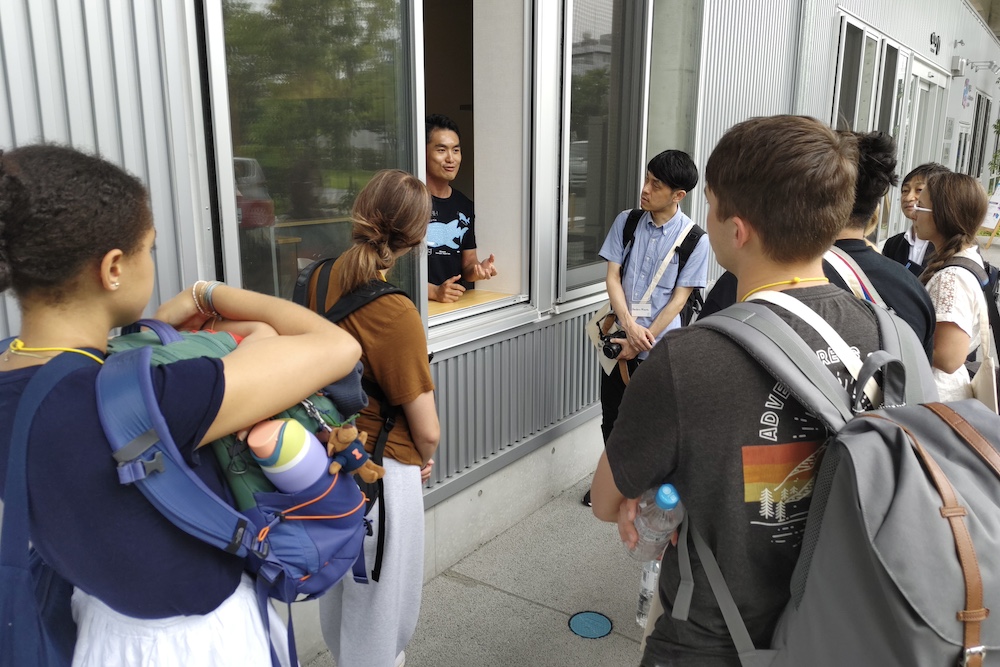
At YADORESI, a share house in Hoshiten qlay
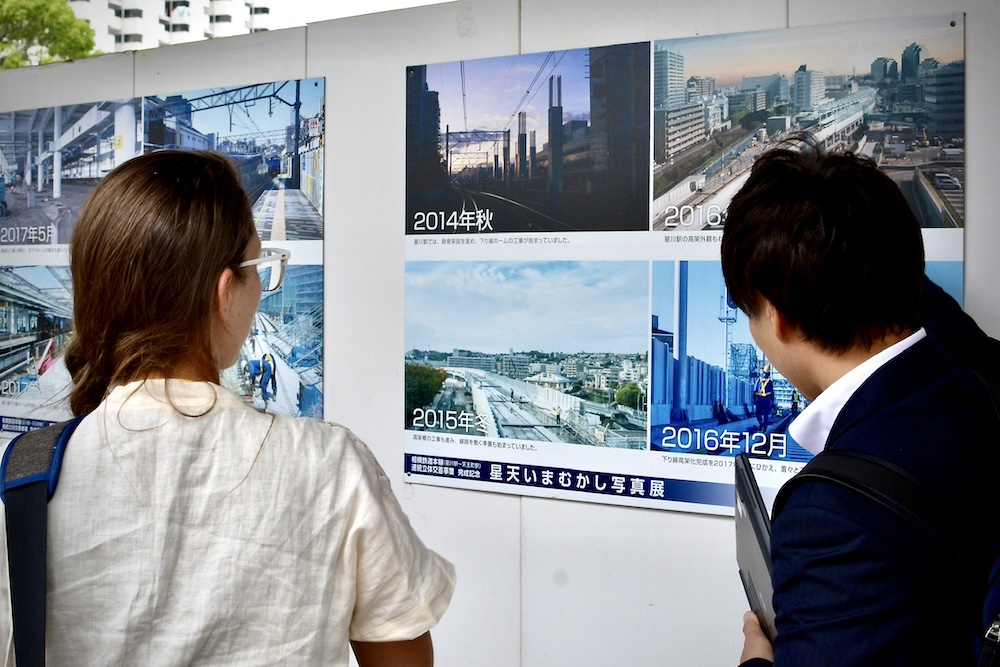
at Tennocho stations
Aside from these questions, the students engaged in various discussions, making this field walk more valuable and meaningful.
Part 2: Sustainable Food Design
After saying goodbye to Sotetsu, the students took a Sotetsu train ride from Tennocho to Yokohama and headed to the Minato Mirai area. Some students noticed that each station has a number and each line has a color, making travel easier for tourists and locals.
The next destination was Haishop and Kitchen MANE in Bashamichi. Haishop is a local souvenir shop and Kitchen MANE is a sustainable restaurant. Both stores are operated by the certified B Corp company Innovation Design Co., Ltd.
The students firstly looked around the souvenirs that are based on ethical and sustainable concept.
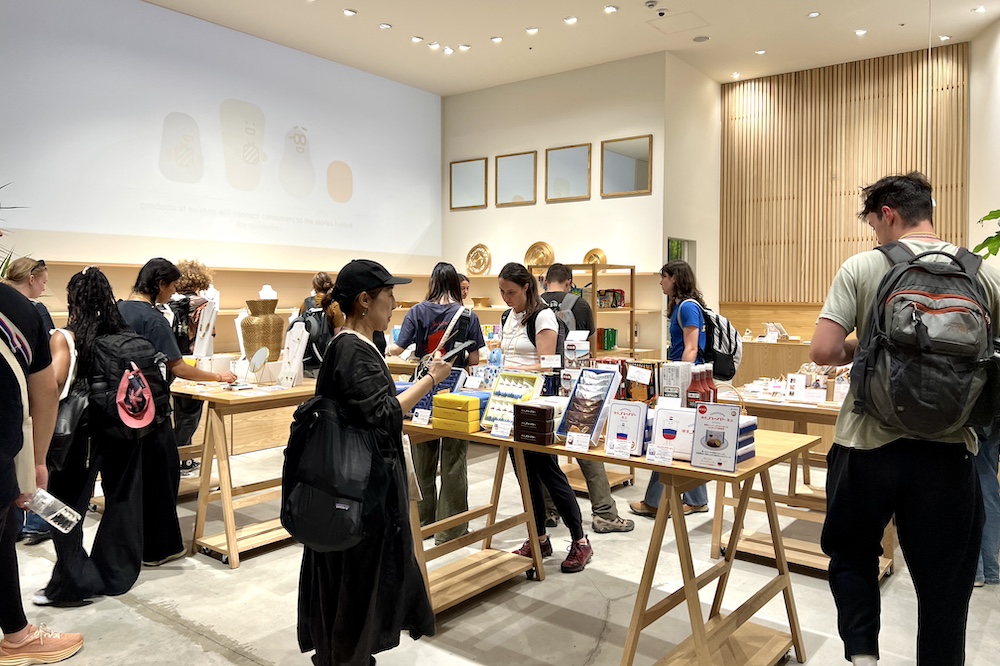
a scene from haishop exploration
After that, they enjoyed a vegan course lunch at Kitchen MANE while listening to a presentation from Nao from Innovation Design.
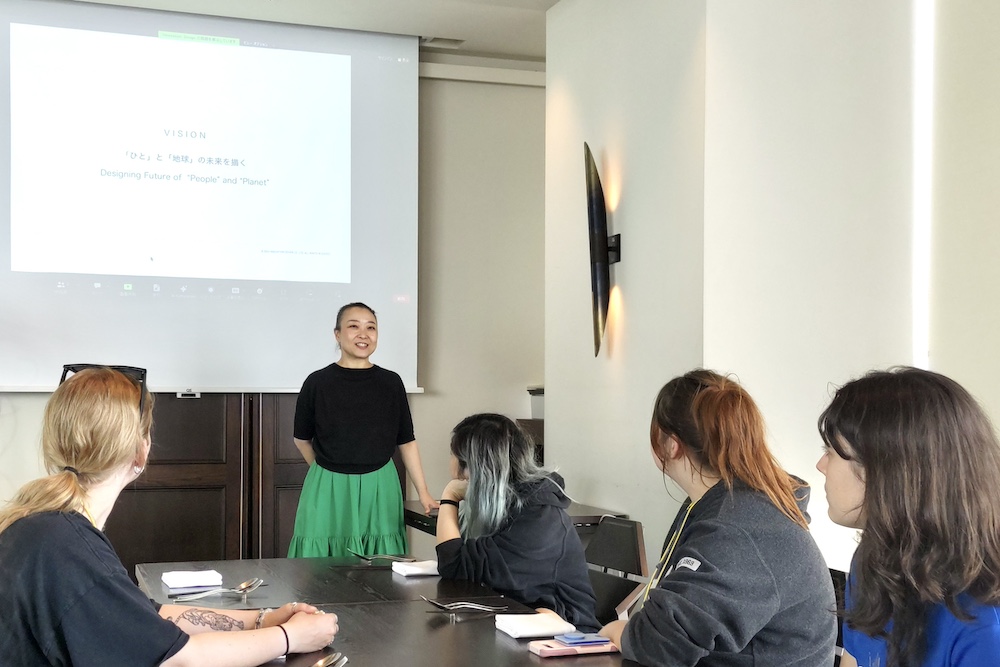
Nao, Innovation Desing, introduing their business model
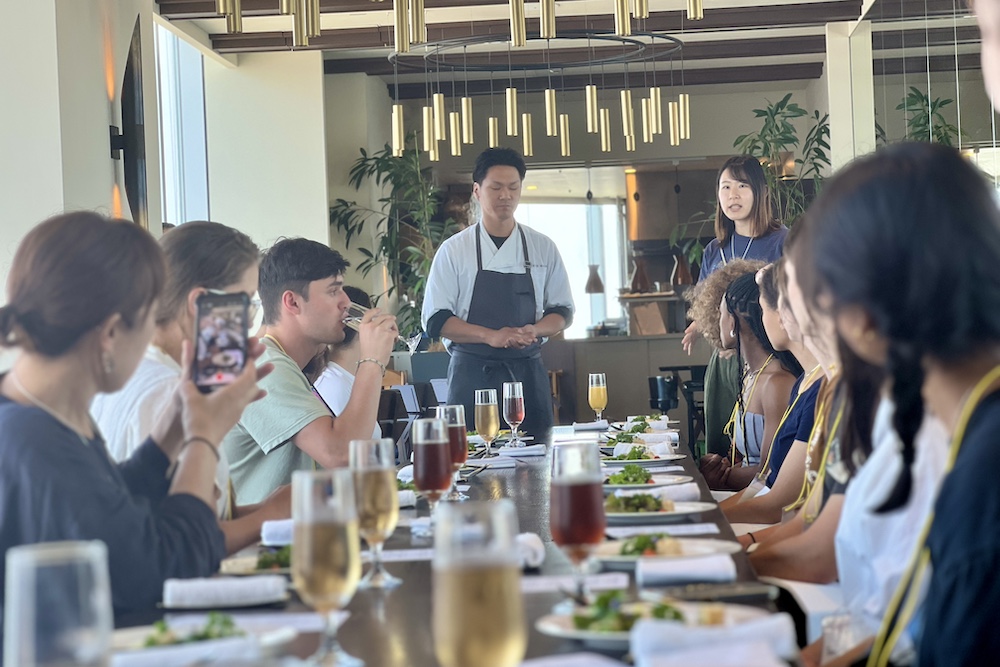
a chef telling the sustainable story behind the food
Innovation Design takes a unique approach towards sustainability. For example, all employees have the title of “sustainable designer,” so that everyone, regardless of their team or project, is engaged in sustainable development daily.
Innovation Design is not just a certified B Corp but also has three stars on Food Made Good, one of the world’s largest food service sustainability programs.
The students learned how Innovation Design designs their sustainable food service and enjoyed locally made meals from Yokohama.
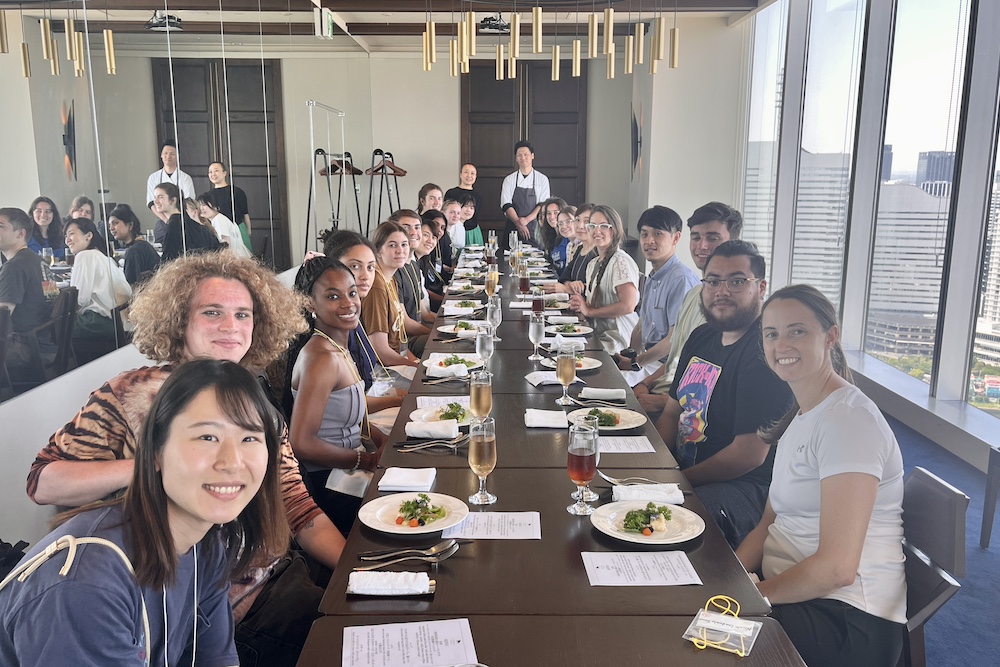
at Kitchen MANE
Part 3: Cultural Exchange over Circular Design Study
Today’s last, but most exciting, part took place at Kanagawa University through a cultural exchange program.
The students walked 15 minutes from Kitchen MANE to Kanagawa University, observing the differences between the residential area “hoshiten qlay” and the urban business district Minato Mirai area.
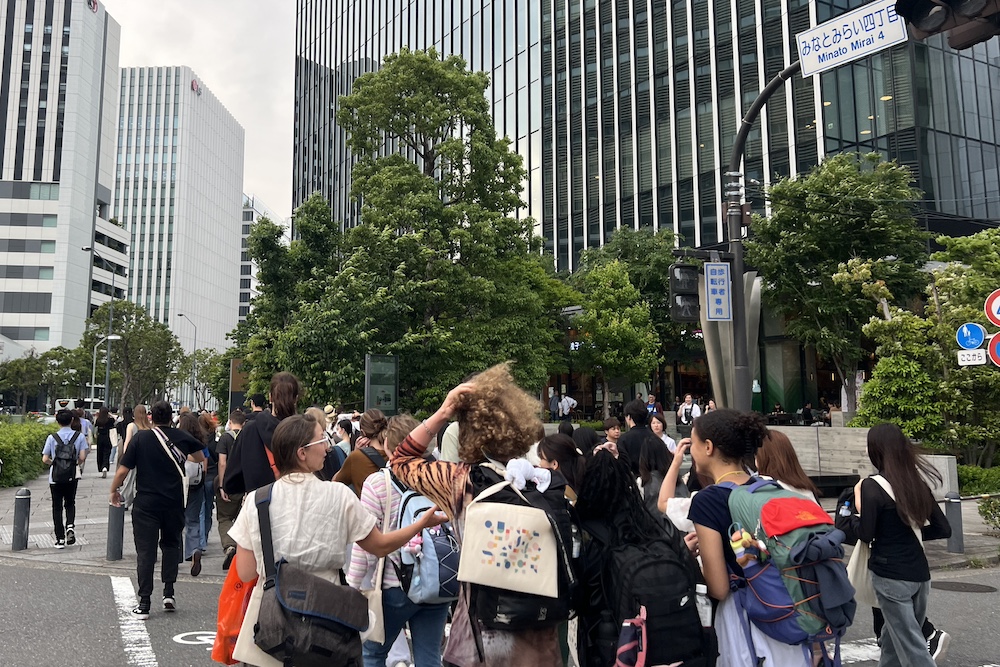
walking around Minato Mirai
Firstly, a Kanagawa University staff took the UIUC students to a campus tour.
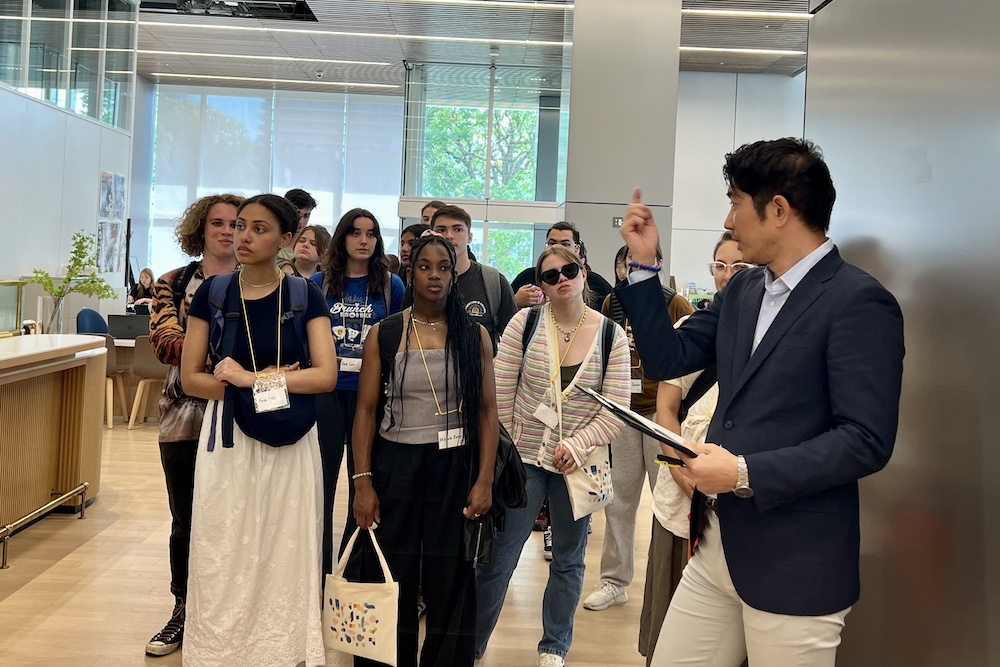
a scene from campus tour
In the exchange program, twenty-one Kanagawa University students, majoring in digital fabrication and interested in international culture, joined.
Some of the Kanagawa University students gave speeches and introduced their circular design projects in English. The UIUC students were fascinated by their ideas and creations.
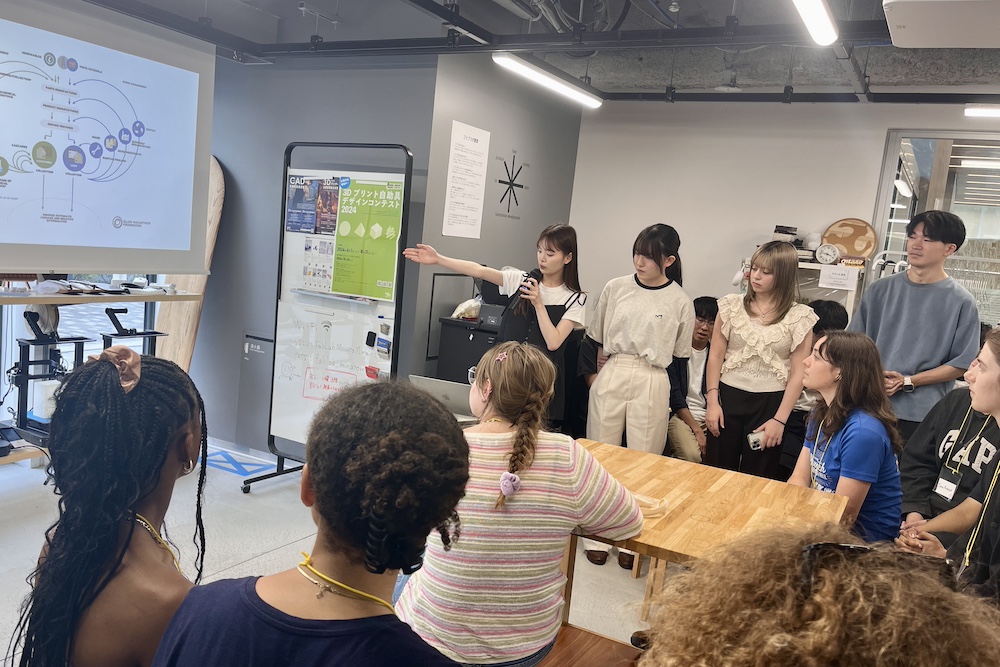
a scene from the Kanagawa university presentation
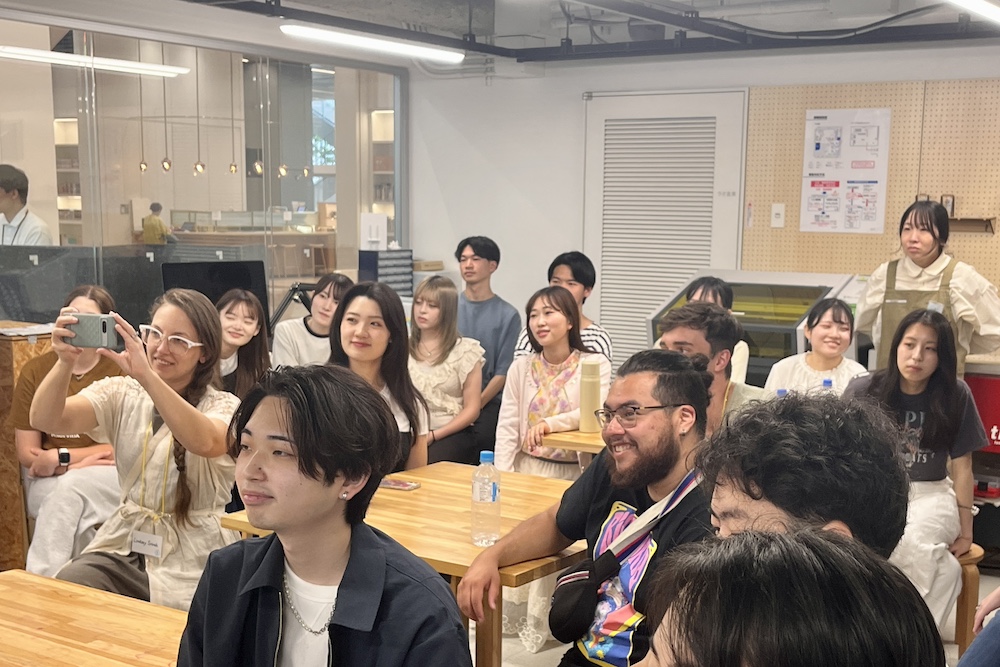
Lastly, the students were divided into groups for casual discussions.
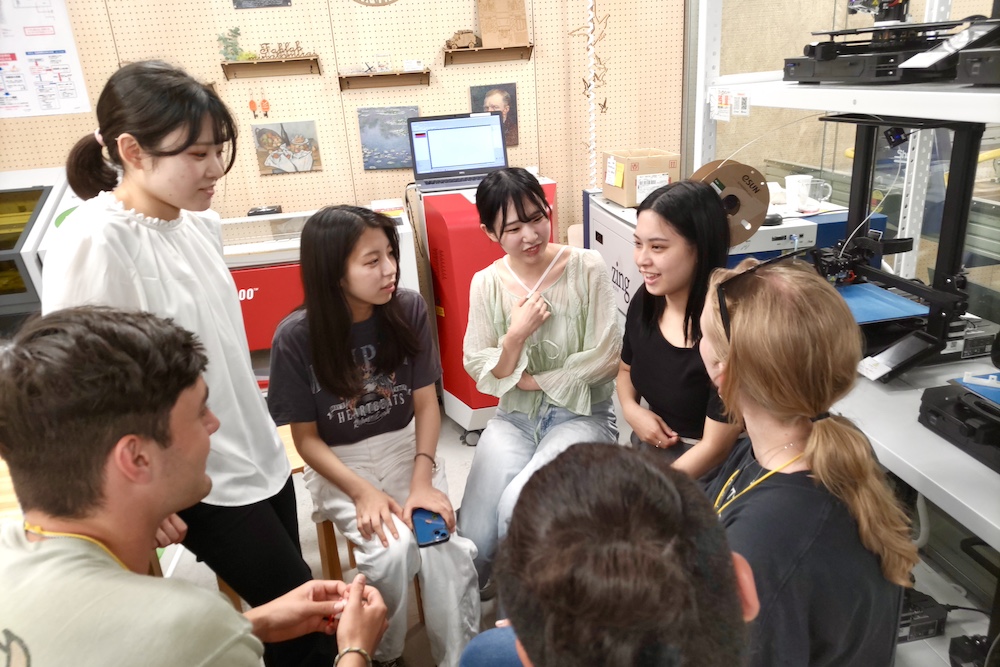
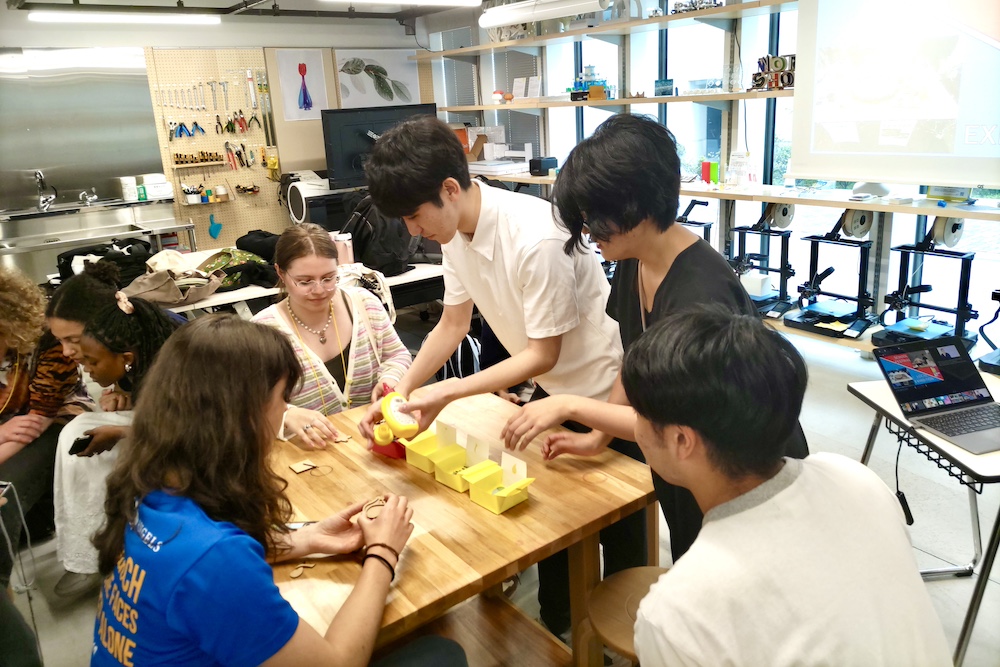
Even though there was a language barrier, everyone found ways to share their research projects and exchanged ideas. The topics extended beyond their studies to differences in school life and dreams after graduation.
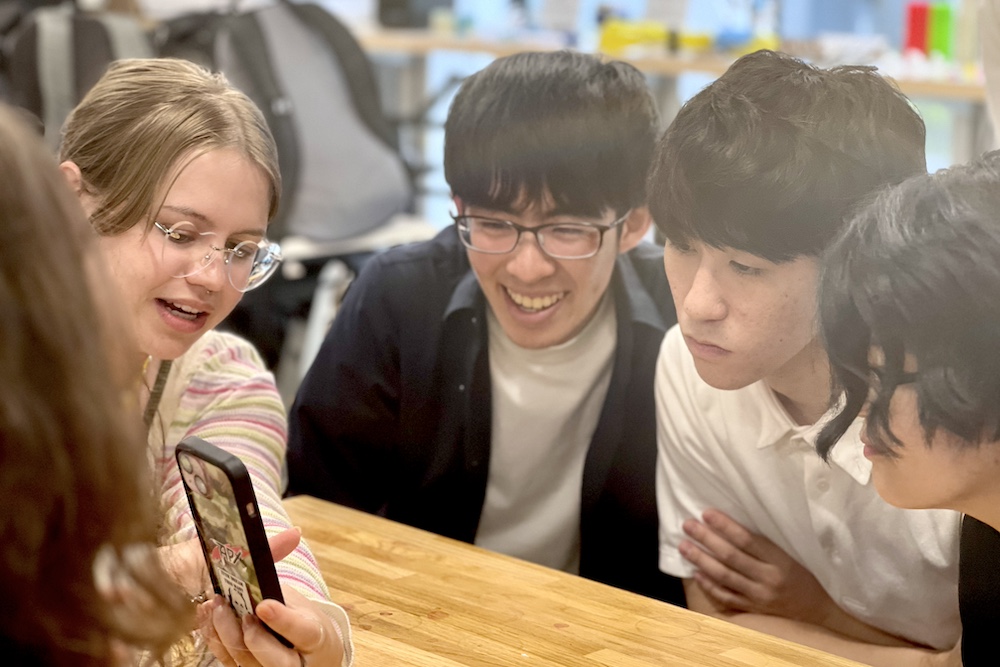
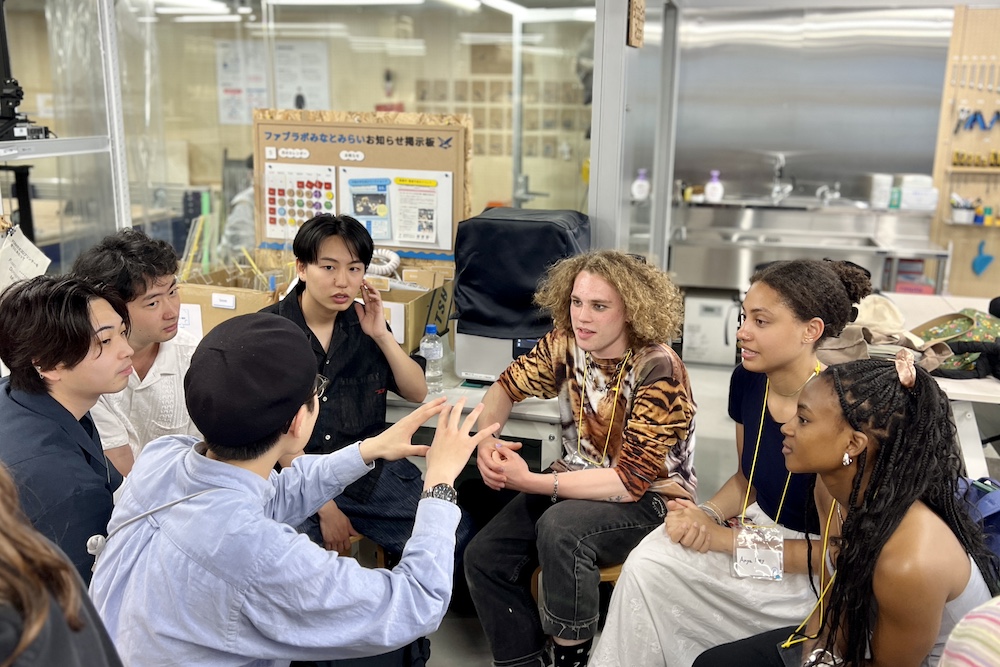
In the end, everyone made new friends and had great memories.
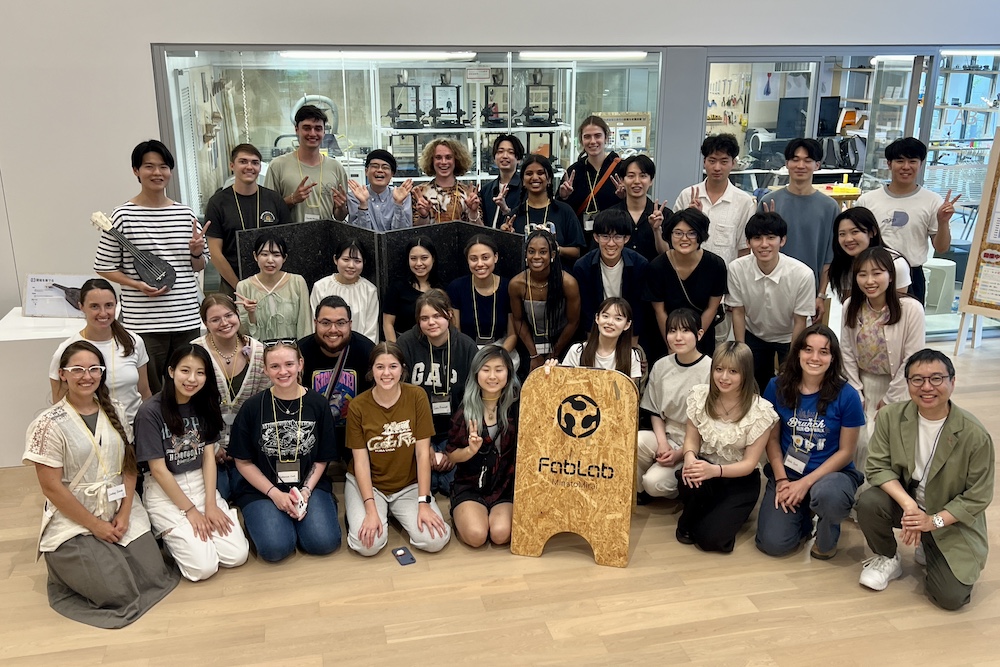
A commemorative photo taken in front of fablab in Kanagawa University
Postscript
This Yokohama one-day tour was the last part of the UIUC Japan visit. We knew everyone must have been quite tired and exhausted from traveling across the country. However, we were glad that all the students were enthusiastic to learn about circular development in Yokohama.
One day was likely too short to fully understand our city and culture, but we are sure the students who participated in this tour had many bright ideas and new connections here, which they will never forget.
We hope to have you all here in Yokohama again!
We would also like to extend many thanks to Sotetsu, Innovation Design, Kanagawa University, and everyone who supported this tour in Japan.
Circular Yokohama will continue to engage in a wide range of activities that contribute to the world’s circular economy.
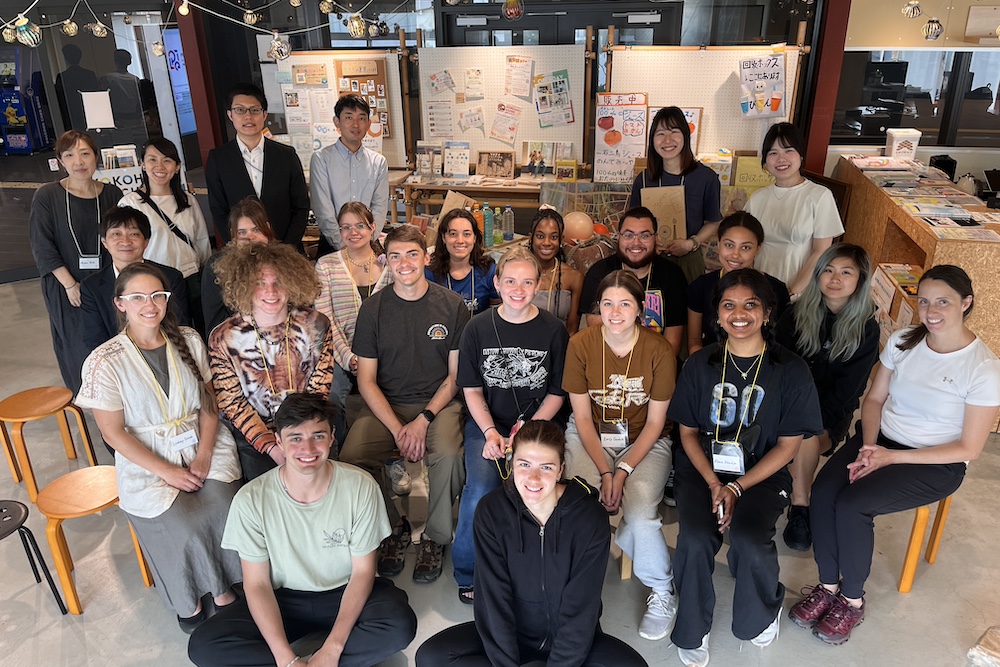
at qlaytion gallery
[Related Post] UNDP Philippines Delegates’ journey into Japan’s Circular Economy
[Reference] Sotetsu Urban Creates Co.,Ltd.
[Reference] Hoshiten qlay
[Reference] Innovation Design Co., Ltd.
[Reference] Kanagawa University Minato Mirai Campus


![YOKOHAMA CIRCULAR FASHION GATHERING: Envisioning the future of textile circulation across industries [EVENT REPORT]](https://circular.yokohama/wp-content/uploads/2025/10/YOKOHAMA-CIRCULAR-FASHION-GATHERING-300x200.jpg)
![Sustainable Micro-tourism: A one-day tour of sustainability initiatives in Yokohama [Event Report]](https://circular.yokohama/wp-content/uploads/2025/08/sustainable-microtourism-main-300x200.jpeg)



